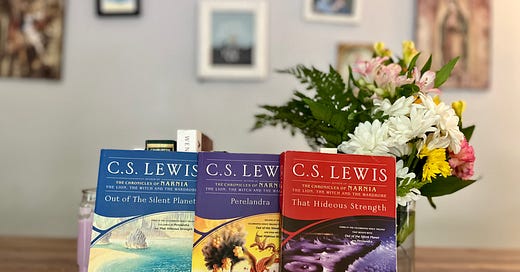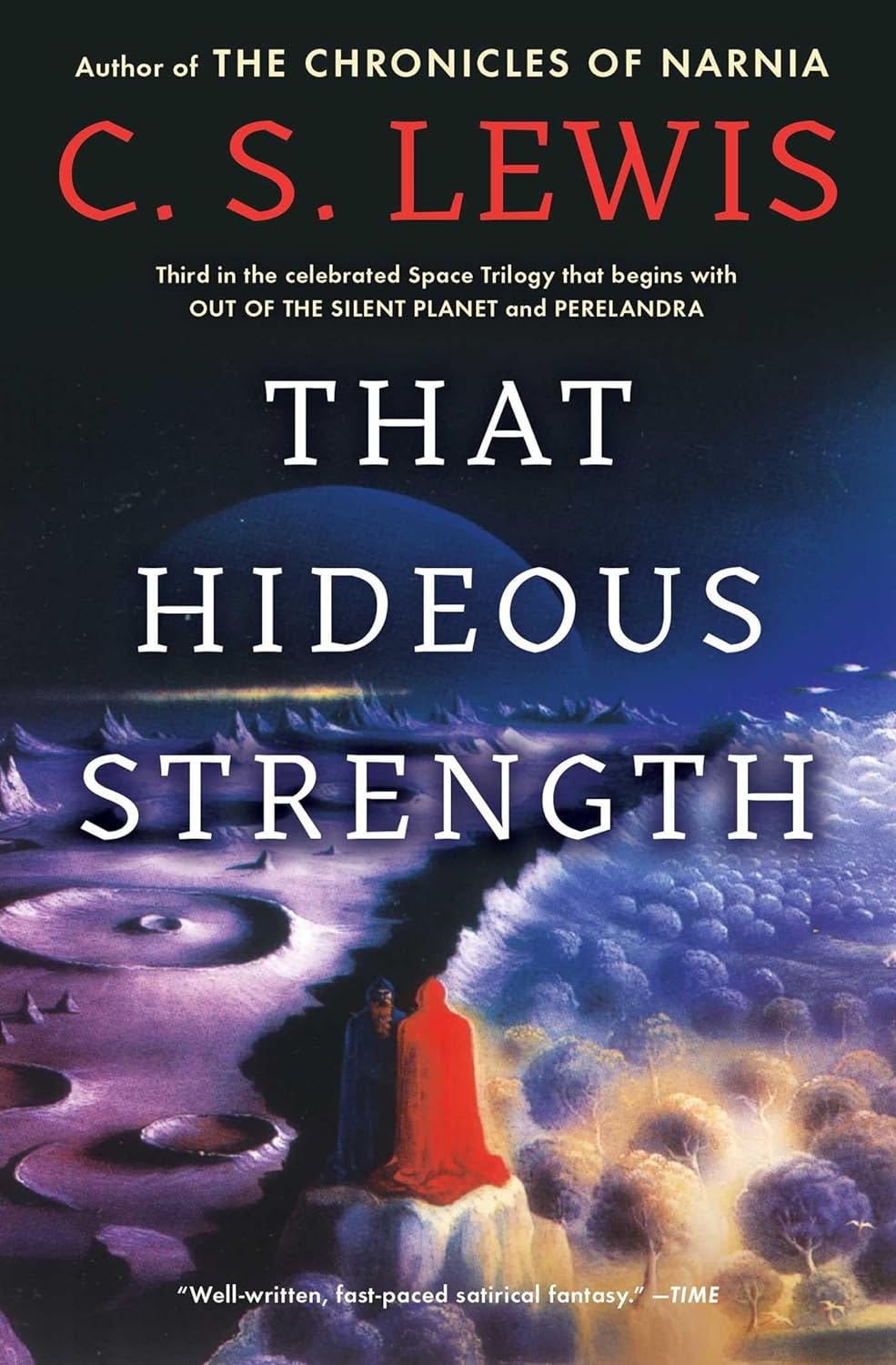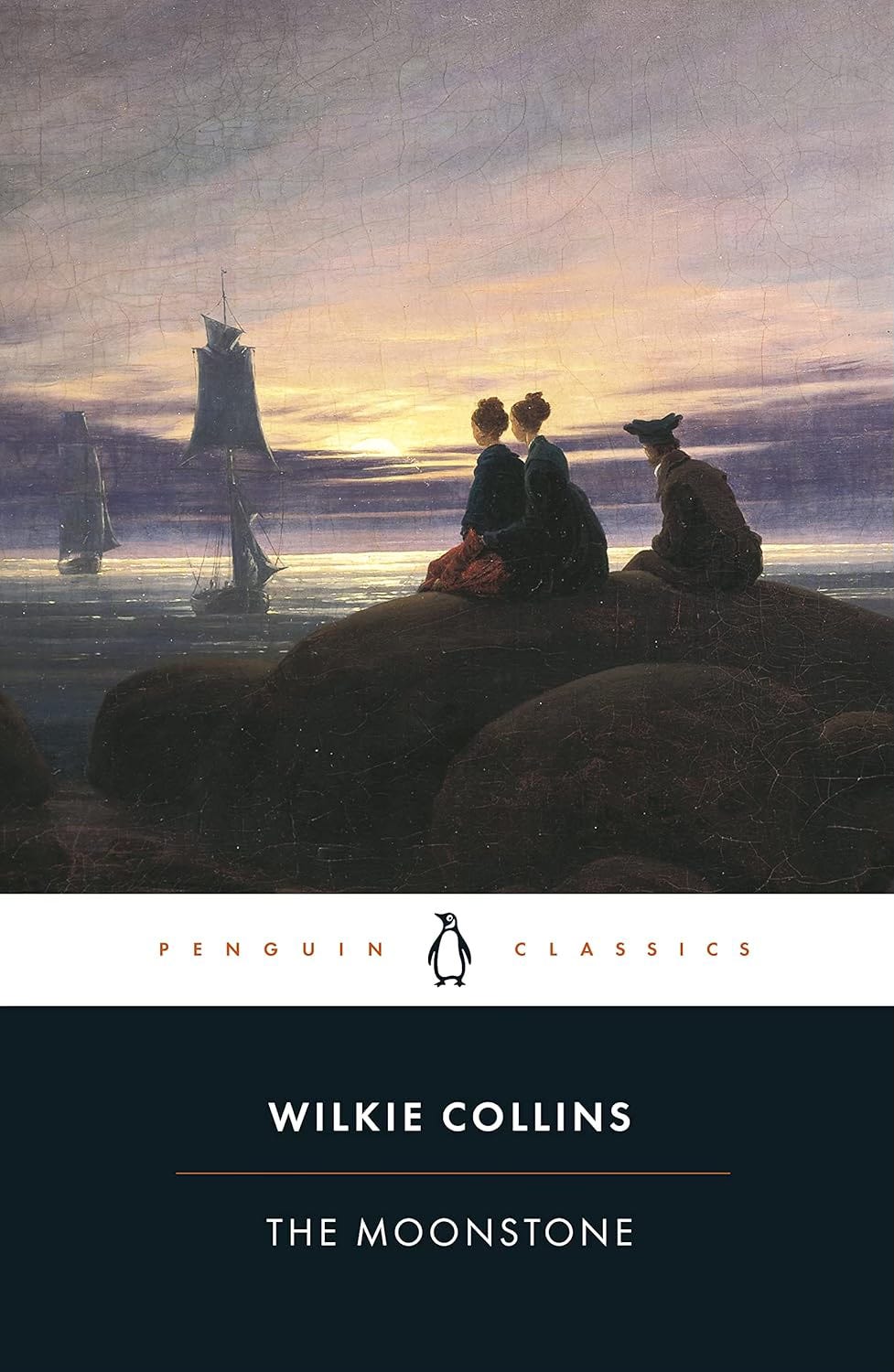Welcome to Reading Revisited, a place for friends to enjoy some good old-fashioned book chat while revisiting the truth, beauty, and goodness we’ve found in our favorite books.
Hello friends, I feel I must start with an apology. This was not a pleasant section to read.
But, take heart in comedic structure! Next week we’ll have our central chapter 9, which should be our lowest point, and then everything should begin moving up towards a good ending. Stick with it.
The Particular is Universal
In the last book of the Anne of Green Gables series, Jem (Anne’s oldest son) returns from WWI and says, “The job isn’t finished—it isn’t really begun” (275).
In Jayber Crow, Jayber says, “I was twenty-eight in 1942…this new war, like the previous one, would be a test of the power of machines against people and places; whatever its causes and justifications, it would make the world worse…The dark human monstrous thing comes and tramples the little towns and never even knows their names” (142).
In Othello, while all the Duke’s court convene because of the impending Turkish fleet, the devilish Iago plots against the fall of a man and his wife.
In the first section of this book, as Mother Dimble’s small town is being “brought up to date,” she says, “It’s as if we lost the war” (74).
This book was published in 1945—by a man who fought in WWI.
Lewis deeply understands that the “political sphere” and the “domestic sphere” are one sphere: this earth.
“No man is an island,” says Donne. The whole cosmic war is focused upon this one island of England, in this one small town, and what occurs here will effect everything “out there.” All the grand bureaucratic talk of the N.I.C.E. is focused upon the one goal of getting this one man, Mark, to offer up to them his wife, Jane.
Despair
This section of the book mainly succeeds in forming a sinking feeling in my stomach, similar in its weighty nauseousness to the gut sink induced by Russian or dystopian literature. It’s the phrase, “But for the grace of God go I,” but applied to an entire nation/society/way of life.
When I read Lewis’ excellent and too-common-place reenactments of conversations within the N.I.C.E.; when the N.I.C.E. members emphasize “elasticity” and the willingness to do whatever the organization asks of you; when Mark is told to write news articles about orchestrated events before they even happen; when the N.I.C.E. says that the goal is to keep “a fierce Left and a fierce Right, both on their toes” because “real power” always is “non-political” (97); when Filostrato waxes eloquent about how Man’s mind is of infinite value but his body is worthless; when Straik uses religious language to justify all actions within the organization; when Fairy Hardcastle cooly and with twisted pleasure interrogates Jane with a burning cheroot for 20 minutes; when all these moments pile with steady, too-normal complacency…I am convinced that I must do everything I can to preserve a free and good society.
Man is not an island. Othello was a good man in Venice, a murderer in Cyprus. A good society is vital to individual human flourishing. And when I see these images of a good society collapsing, Wendell Berry-fashion, after having purportedly won the war…it can make my heart constrict in fear.1
Anti-Man = Anti-Nature & Anti-Body
Ever since Weston began spewing his scientifically jargoned dogma about the “preservation of the human species” on Mars, we have been tracking this theme of “Anti-Man.”
On Venus, Weston took this theme to a new level when he emphasized the spiritual:
The majestic spectacle of this blind, inarticulate purposiveness…swept away my conception of a duty to Man as such. Man in himself is nothing…To spread spirituality, not to spread the human race, is henceforth my mission…I worked first for myself; then for science; then for humanity; but now at last for Spirit itself (Perelandra, 78).
He began with selfishness and ended with “becoming spiritual,” and paused not for a moment’s delay to give twopence for any fellow person on the way.
And when Ransom asks the clarifying question of whether this experience of the spiritual is “in any sense at all personal” (79), Weston answers emphatically in the negative.
Sorry Weston, but reviving a Gnostic heresy from the 2nd century isn’t exactly cutting-edge thought. “Spirituality” is not inherently good. The devil, as a fallen angel, is entirely spiritual. And the material world, though fallen, is not inherently bad. You can’t make it that cut and dry. Bad conclusions result.
Humans are amphibians—half spirit and half animal. (The Enemy’s determination to produce such a revolting hybrid was one of the things that determined Our Father to withdraw his support from Him.)
-C.S. Lewis, The Screwtape Letters, Chapter 8
Thus, we begin to see the diabolical end of this Anti-Man theme. To disregard individuals for the sake of “humanity” is to put oneself down the path of Filostrato:
“There is a world for you, no?” said Filostrato [looking at the moon]. “There is cleanness, purity. Thousands of square miles of polished rock with not one blade of grass…the universe will have no end…A pure race…They have cleaned their world, broken free (almost) from the organic…They are almost free of Nature…If you remove all the vegetation, presently you have no atmosphere, no water…hygiene…disinfecting…This Institute—Dio meo, it is for something better than housing and vaccinations and faster trains and curing people of cancer. It is for the conquest of death: or for the conquest of organic life, if you prefer. They are the same thing. It is to bring out of that cacoon of organic life which sheltered the babyhood of mind the New Man, the man who will not die, the artificial man, free from Nature. Nature is the ladder we have climbed up by, now we kick her away” (173-4).
And just like that, I love the gift of being able to die. With that final perspective shift, Lewis causes me to recoil away from forcing everlasting life onto this world, and he helps me to understand the mercy which sent our first parents out of the garden before we could eat the fruit of eternal life. My goodness, a life that was perfect? A life without mess? A life with no growth and decay, with no flowers, heat waves, red leaves, or snow? What kind of a life would that be?
I suddenly understand, that due to our bodies we “inhabit time” and that “to be in time means to change. [Our] nearest approach to constancy, therefore, is undulation—the repeated return to a level from which [we] repeatedly fall back, a series of troughs and peaks” (Screwtape, Letter 8).
Life without the seasons? Not worth living.
Life in a clean house? Perfectly clean, like the moon, sterile and with every item in its places, even the dust pile unmoved by any stray waft of wind? Not—I now see—worth living. Suddenly, I embrace the daily rhythm of dirt and tidying, mayhem and peace, growth and breaking, as my lifeline to the real divine. Give me time, then give me death, but do not give me Filostrato’s floating mind eternity.2
Leap of Faith
Lastly, I would like to pause to ponder the religiousness of the N.I.C.E. Constantly Mark is being asked to “become one” with the institute, and place all his trust in and put all of himself at the disposal of the institute. Look at the symbolic nature of the final scene of chapter 8:
When the three newcomers had removed their outer clothes, they washed their hands and faces, and after that Filostrato plucked white clothes for them out of a glass container with a pair of forceps (177).
Three people, washing, putting on new, clean, white garments under the auspices of an Italian…this is Baptism imagery repurposed. Evil cannot create, it can only mimic.
And so, I am struck by Man’s inability to remain neutral. He will be “drawn in,” one way or another to some world view, some way of thinking, some perspective, some religion. There is no escaping that one will hold a belief.
Therefore, in closing, here is an excerpt from Joseph Cardinal Ratzinger (later to be known as Pope Benedict XVI) about the reality man must face that he cannot escape belief (or, therefore, doubt).
This passage comes from the first chapter of his book titled, Introduction to Christianity, which was written as an answer to the question Pope Benedict XVI asked himself, which was: How do we introduce Christianity to a world which believes it already knows it?
In the opening scene of the Soulier de Satin..a Jesuit missionary…the hero of the play (a worldling and adventurer veering uncertainly between God and the world), is shown as the survivor of a shipwreck. His ship has been sunk by pirates; he himself has been lashed to a mast from the sunken ship, and he is now drifting on this piece of wood through the raging waters of the ocean. The play opens with his last monologue:
“Lord, I thank thee for bending down like this. It sometimes happened that I found thy commands laborious and my will at a loss and jibbing at thy dispensation. But now I could not be bound to thee more closely than I am, and however violently my limbs move they cannot get one inch away from thee. So I really am fastened to the cross, but the cross on which I hang is not fastened to anything else. It drifts on the sea” (Le Solier de Satin, Act I, Scene I).
Fastened to the cross—with the cross fastened to nothing, drifting in the abyss. The situation of the contemporary believer could hardly be more accurately and impressively described. Only a loose plank bobbing over the void seems to hold him up, and it looks as if he must eventually sink. Only a loose plank connects him to God, though certainly it connects him inescapably, and in the last analysis he knows that this wood is stronger than the void that seethes beneath him and that remains nevertheless the really threatening force in his day-to-day life (43-44).
…
Just as the believer knows himself to be constantly threatened by unbelief, which he must experience as a continual temptation, so for the unbeliever faith remains a temptation and a threat to his apparently permanently closed world. In short, there is no escape from the dilemma of being a man (45).
…
Perhaps in precisely this way doubt, which saves both sides from being shut up in their own worlds, could become the avenue of communication (47).(Joseph Cardinal Ratzinger, Introduction to Christianity, 43-47)
A leap of faith must be taken.
Mark is asked to take a leap of faith into the N.I.C.E. Jane is asked to take a leap of faith into St. Anne’s on-the-Hill. We cannot escape the dilemma of being man, we cannot remain cooly neutral.
Miscellany & Questions
I’m interested in Mark’s longing to be an insider and Jane’s opposing desire to “not be drawn in.” Are these inclinations specific to the individual temperaments of Mark and Jane? Do these inclinations have something to say about Men and Women?
Does it have anything to do with Lewis’ quip that both men and women need to be told to mind their own business, but it means different things to the different genders. For men it means: you need to mind (at least) your own business. For women it means: you need to (just) mind your own business.
At the N.I.C.E., who do you think “the Head” will be? or what will “the Head” be? or how will it be?
All kinds of connections to be made here…Men without chests…Mind over matter…
Fairy Tale and Curdie connections…we have not touched on any of these. But I think thinking in terms of Fairy Tale assists (somewhat) in making sense out of the tame animals wandering about St. Anne’s on-the-Hill.
Ransom! We did not get a chance to talk about Ransom aka “the Pendragon” or “Mr. Fisher-King,” who is the Head of St. Anne’s on-the-Hill. Things ripe for discussion:
His name/s
the experience of the numinous
A comparison of the N.I.C.E. Head and St. Anne’s on-the-Hill’s Head.
obedience done well vs. poorly, and how Jane is “tempted” by a “false obedience” (perhaps?), but is assisted by a “good obedience.” Lots of room for discussion here, also lots of room for error if my terms aren’t exact.
Marriage - I barely even mentioned it, mea culpa. I’ll set here, therefore, the best passages on marriage from the kitchen conversation between Mother Dimble and Jane:
“The Director’s idea is that men and women can’t do housework together without quarreling. There’s something in it. Of course, it doesn’t do to look at the cups too closely on the men’s day, but on the whole we get along pretty well.”
“But why should they quarrel?” asked Jane.
“Different methods, my dear. Men can’t help in a job, you know. They can be induced to do it: not to help while you’re doing it. At least, it makes them grumpy.”
“The cardinal difficulty,” said MacPhee, “in collaboration between the sexes is that women speak a language without nouns. If two men are doing a bit of work, one will say to the other, ‘Put this bowl inside the bigger bowl which you’ll find on the top shelf of the green cupboard.’ The female for this is, ‘Put that in the other one in there’” (164).
Before this conversation, Jane thought her marital squabbles were particular to herself and Mark. In this conversation, in this “what, you too?” moment, she realizes that her particular experiences are universal, and that can make all the difference.
Also, my favorite is that Lewis, an honest bachelor, gives himself an “out” through Mother Dimble:
“I never attempt to understand what he says on that subject [the subject of equality]…He’s usually talking either about spiritual ranks—and you were never goose enough to think yourself spiritually superior to Ivy—or else he’s talking about marriage.”
“Did you understand his views on marriage?”
“My dear, the Director is a very wise man. But he is a man, after all, and an unmarried man at that. Some of what he says, or what the Masters say, about marriage does seem to me to be a lot of fuss about something so simple and natural that it oughtn’t to need saying at all. But I suppose there are young women now-a-days who need to be told it” (165).
Now onto chapters 9-12!
Until next time, keep revisiting the good books that enrich your life and nourish your soul.
In Case You Missed It:
On the Podcast:
Read Along Guides for the the Space Trilogy:
What We’re Reading Now/Next:
March
That Hideous Strength by C.S. Lewis
April
The Moonstone by Wilkie Collins
May
Death Comes for the Archbishop by Willa Cather
A Few Reminders:
If you are wanting to get in on the in person or virtual community please contact us!
We have turned on paid subscriptions which will allow you to support the work we are doing here as well as receive Read Along Guide PDFs each month, voice recordings of the Read Along Guides and Essays, and we are working on (printable) bookmarks for each book.
If you would like to make a small contribution to the work we’re doing here at Reading Revisited, we invite you to do so with the Buy (Us) a Coffee button below. We so appreciate your support!
*As always, some of the links are affiliate links. If you don’t have the books yet and are planning to buy them, we appreciate you using the links. The few cents earned with each purchase you make after clicking links (at no extra cost to you) goes toward the time and effort it takes to keep Reading Revisited running and we appreciate it!
Reading Revisited is a reader-supported publication. To receive new posts and support my work, consider becoming a free or paid subscriber.
I do not wish this to be read as a commentary on current events, in the sense that it would suggest I am making a statement about the latest news. I am not current enough with current events for that to be my intention. Indeed, I feel generally hopeful, trusting, and confident in my neighbors and countrymen. If there is any implied action I’m trying to make with this statement, it is: pray and love your neighbor (the real one, next door, and the real ones, in your home). I love America, and am not in despair about her.
I could write an entire essay just on one aspect of this theme. Specifically on the idea that being “anti-man” leads to a culture of death. Filostrato’s mention of separating pleasure from procreation lends itself naturally to a discussion on the side effects of contraception, namely a mindset which makes humans a commodity that can be turned on or off at will, as well as the well-researched correlation to decreased libido between the sexes.








